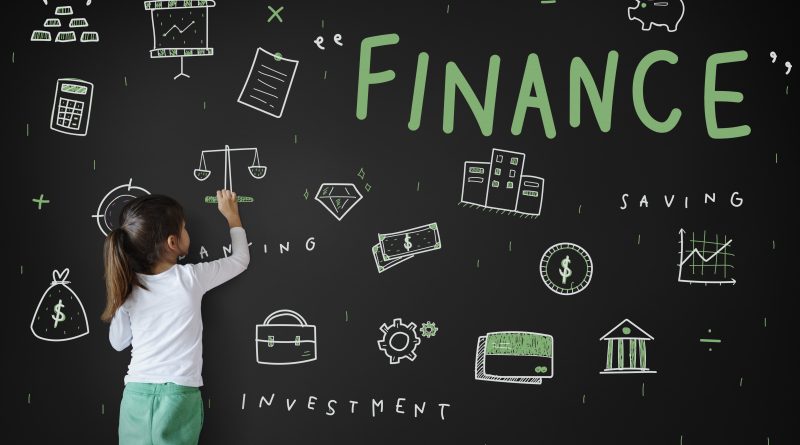Money & Your Brain: How to Apply Behavioral Economics to Manage Your Finances Better
By Fitz Gerard Villafuerte, RFP®
Bad money habits are hard to break. Most, if not all, recognize that it is important to save money and control spending. However, a lot of people still end up in debt with little or no savings in their bank account.
People will always start with the best intentions for themselves. They even resolve to become better at managing their money, but only to fall off the wagon a few days or weeks later.
Behavioral finance experts aren’t surprised at all by these facts. For years, they’ve studied the financial habits of people and discovered how human psychology can have a great impact on our money decisions.
They call it behavioral biases. And it explains why most people postpone investing, why they buy on impulse, and many other irrational choices when it comes to money.
Behavioral biases occur in all parts of life, not just in personal finance. But it is most apparent where money is concerned because as experts have learned – people are emotional when it comes to money.
Below are some of these biases and how behavioral economics can be applied to effectively change our finances for the better.
Overconfidence Bias
If you ask someone how they would rate their driving skills, they’ll most likely say it’s above average. Statistically, that can’t be right because given a set of drivers, not everyone can be above average.
In investing, overconfidence bias makes people think that they can beat the market if they invest on their own. But studies show that a lot of them actually do worse than those who invest through, say, a stock index fund.
The reason for this is because people tend to pick stocks using limited information or those that they only know (familiarity bias). And unless they work in the financial industry, they’d certainly lack skills and knowledge in several tools that help analyze the market.
In fact, even professionals cannot accurately predict where prices will go. So realize that timing the market is not as important as your time in the market. And many financial experts agree that long-term investing is the best way to mitigate risks of losing money in the market.
Moreover, it will help to have a diversified portfolio to match the market. This means putting money not just in different sectors of the stock market, but in other financial instruments as well such as bonds and managed funds.
Empathy Gap
In another study, people were asked if they’d be willing to dance in front of a stranger in a week’s time. Most people agreed, but a lot of them eventually backed out of the task as the actual day of the performance came.
This shows that apart for overestimating our abilities, we also tend to overestimate the level of risk that we will be comfortable with in the future. That’s why a lot of people, even if fully aware how volatile the market can be and how it eventually recovers, will still panic and even withdraw their investments when prices drop.
So how do you overcome empathy gap? Experts say that working with a financial planner or advisor works best at evaluating your financial risk tolerance. They can also help you set up a rational financial strategy that’s designed to reach your goals. Lastly, they can also help you get through market volatility by reminding you how it is expected and why you shouldn’t make emotional decisions that can take you off track from your financial plan.
Short Term Gratification
The empathy gap makes it hard for us to imagine how we’ll react when we’re stressed; it also makes it hard to even care about the future. Studies have shown that thinking about a future self is akin to thinking about a stranger. It is no wonder the short term needs take priority over the long term.
Thus, the reason why people succumb to impulse purchases despite having resolved to start saving more money. It’s hard for them to imagine how their savings could really help them in the future. However, feeling the immediate satisfaction of wearing those new shoes or watch can be overwhelming.
The solution to this behavioral bias is to have tangible financial goals. By being specific in visualizing their future, it will be easier to resist such temptations. For example, instead of just telling yourself to save money, tell yourself that you’re saving up for your dream home that you plan to buy in five years’ time.
If you do this, the next time you pass by a store having a sale, you can taper off that desire to buy new shoes with a vision of your family bonding inside your dream house.
Reliance on Willpower
Willpower is a limited resource. A person relying mostly on willpower to follow a diet and an exercise routine to lose weight will most likely fail after a few weeks. That’s because it gets harder to resist something the longer you try to.
While that doesn’t really sound optimistic, it’s been found that the best way to overcome this challenge is to create and follow a process that can be automated. This means relying more on a system that will lead you to accomplishing your goals.
For example, instead of scrimping so you can save money, which in due time will foster self-pity within you, why not just automate your savings plan. Let your bank automatically debit a fixed amount from your balance every month and funnel it into an investment account. No willpower needed, which means you’ll have a healthy and growing investment fund in no time.
Final Thoughts
There are many other behavioral biases that can affect our personal finance, especially if not properly addressed. The real key is to be aware of such and always checking in on ourselves before making decisions about money.
The good thing is that, once we are able to establish good money habits, and start to feel the benefits of having financial stability, it now becomes easier to continue and follow through until we reach our financial goals.
This story was originally published in the January-March 2018 issue of MoneySense.



